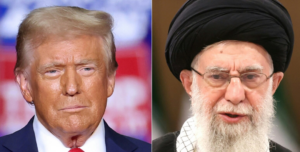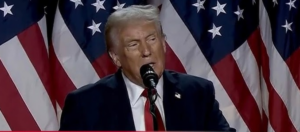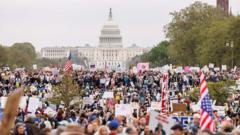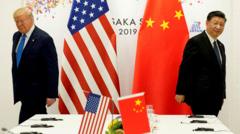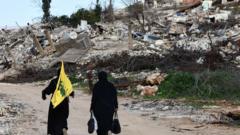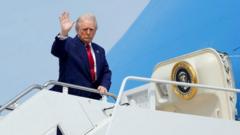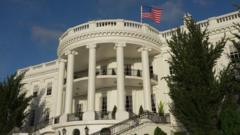As diplomatic tensions rise, President Trump has confirmed that the United States and Iran will engage in direct discussions regarding a potential nuclear agreement this Saturday. This revelation comes after a meeting with Israeli Prime Minister Benjamin Netanyahu, highlighting the urgency of the situation.
Direct Nuclear Negotiations Between US and Iran Unveiled by Trump

Direct Nuclear Negotiations Between US and Iran Unveiled by Trump
US President Donald Trump announces "high-level" talks with Iran, warning of severe consequences for inaction.
The talks are set to take place amid an escalating military rhetoric from the US following Iran's Supreme Leader Ayatollah Ali Khamenei's dismissal of past offers. Trump stressed that failure to reach an agreement would put Iran in a precarious position, stating, "Iran cannot have a nuclear weapon."
The prospect of negotiations marks a significant shift since the two nations severed formal diplomatic ties in 1980. Iranian Foreign Minister Abbas Araqchi clarified their stance, emphasizing the importance of diplomacy, albeit through indirect channels. Trump's recent overtures towards Tehran – including a rejected letter sent via the UAE – have not yet resulted in concrete discussions.
Trump's pursuit of a new agreement follows his controversial withdrawal from the 2015 nuclear deal, initially negotiated by predecessor Barack Obama. Since that time, Iran has progressively violated terms, leading to grave concerns about its nuclear capabilities, as evidenced by reports from the International Atomic Energy Agency regarding enriched uranium stockpiles.
For Israel, preventing a nuclear-armed Iran remains a top priority, with Netanyahu underscoring the alliance with the US to ensure Iran does not possess nuclear weapons. As the situation develops, the world watches closely, knowing that the outcome of this dialogue could drastically alter geopolitical dynamics in the region.
The prospect of negotiations marks a significant shift since the two nations severed formal diplomatic ties in 1980. Iranian Foreign Minister Abbas Araqchi clarified their stance, emphasizing the importance of diplomacy, albeit through indirect channels. Trump's recent overtures towards Tehran – including a rejected letter sent via the UAE – have not yet resulted in concrete discussions.
Trump's pursuit of a new agreement follows his controversial withdrawal from the 2015 nuclear deal, initially negotiated by predecessor Barack Obama. Since that time, Iran has progressively violated terms, leading to grave concerns about its nuclear capabilities, as evidenced by reports from the International Atomic Energy Agency regarding enriched uranium stockpiles.
For Israel, preventing a nuclear-armed Iran remains a top priority, with Netanyahu underscoring the alliance with the US to ensure Iran does not possess nuclear weapons. As the situation develops, the world watches closely, knowing that the outcome of this dialogue could drastically alter geopolitical dynamics in the region.




